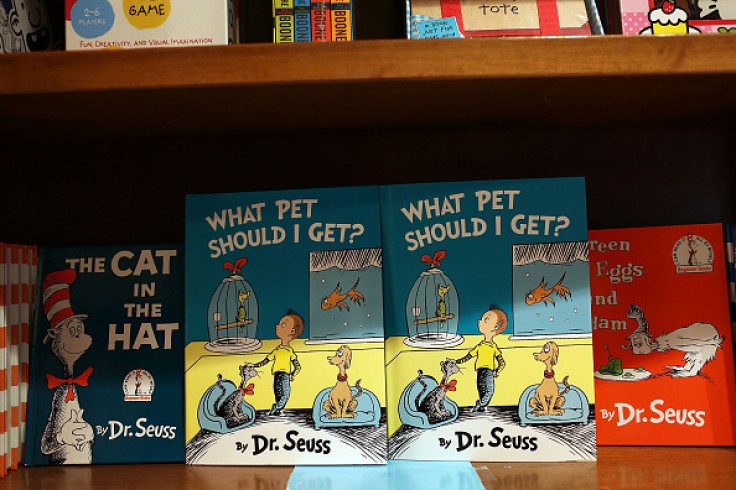
Dr. Seuss Enterprises has announced that they will no longer publish six of the author's books including, And to Think That I Saw It on Mulberry Street and If I Ran the Zoo because they "portray characters in ways that are hurtful and wrong." The portrayal of Asian and Black people in the books has been questioned.
According to Dr. Seuss Enterprises, the corporation that owns the author's books and characters decided to stop publishing the books after reviewing educators and other experts. The remaining four titles that they will put on hold indefinitely are McElligot's Pool, On Beyond Zebra!, Scrambled Eggs Super!, and The Cat's Quizzer.
According to the foundation, the decision was taken last year to promote "all children and families with messages of hope, motivation, inclusion, and friendship."
And to Think That I Saw It on Mulberry Street, first published in 1937, was the book that catapulted Theodor Seuss Geisel's career to new heights, as he transitioned from ads to writing children's books as Dr. Seuss. It has a Chinese character described with two lines for eyes, chopsticks and a bowl of rice in his hands, and traditional Japanese-style shoes on his feet.
Meanwhile, two guys, supposedly from Africa, are seen shirtless, shoeless, and wearing grass skirts while carrying an exotic animal in the book, If I Ran the Zoo.
Mulberry Street was overshadowed by many of Geisel's later novels. However, reviewers and readers have struggled to reconcile the book's open-hearted and witty tone with the small-minded caricatures of minorities that it and other Seuss classics contained over the years.
All that, among others, linked Dr. Seuss's six books to racism. Outside of his novels, Seuss's reputation has been questioned as well: "In high school, he wrote an entire minstrel show and acted as the main character in full blackface."
Dr. Seuss's books sparked public discussion on racism or the meaner term of "cancel future," but the company thinks otherwise
The company's announcement on March 2 might be small, but it is a significant step forward for the millions of other parents of color and race.
But instead of igniting a national debate about what the future of representation in children's literature might and should look like, this decision has sparked a stale discussion about "cancel culture" and remove Dr. Seuss's entire legacy.
Dr. Seuss Enterprises responded that "cancel culture" is a deceptive ruse with little to do with this decision. They collaborated with a group of experts to keep themselves accountable by admitting that the six books it would no longer publish contained racial imagery and prejudices that have no place in today's children's literature.
READ MORE : Easy Ways to Get Your Kids to Read More Books
Other writers believe that the action is a chance for other authors and illustrators of color to diversify the publishing industry's gatekeepers and decision-makers. To have an opportunity for a generation of kids to benefit from characters who share their experiences.
One part of the solution is to stop the publishing of children's books that reflect negative stereotypes. The other is to tell new inclusive stories in advance so that every child can see themselves as the protagonist in a tale full of possibilities.
It wasn't a vote on whether or not Dr. Seuss was racist. It wasn't meant to make parents feel bad for getting those books on their shelves. It was merely a reaction to the pressing and unaddressed racism and underrepresentation in the media we associate with our children. That's the kind of discussion we should be having.